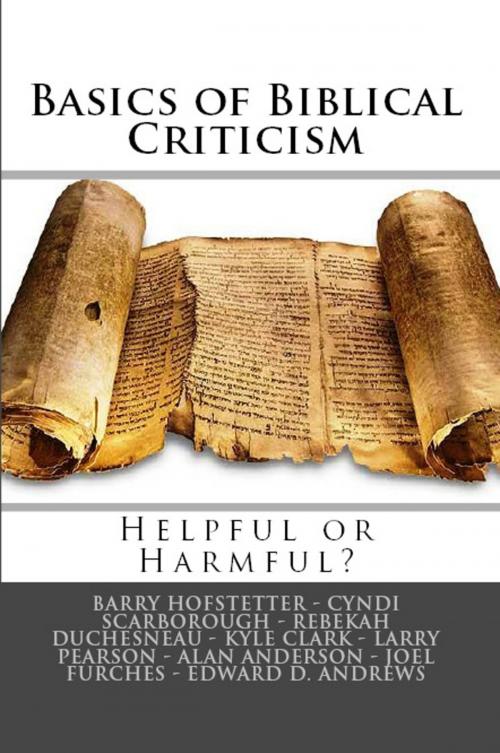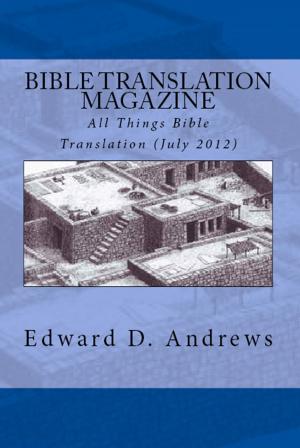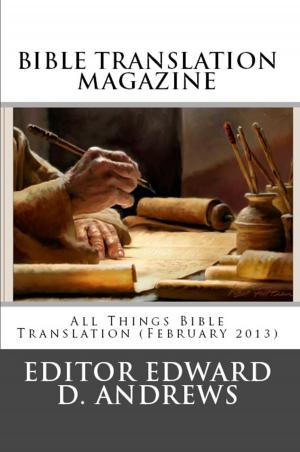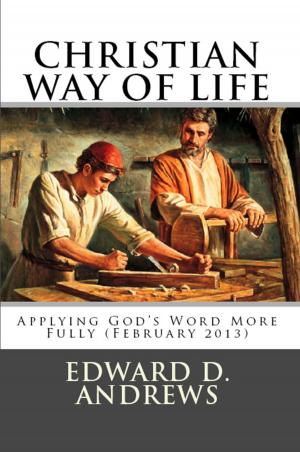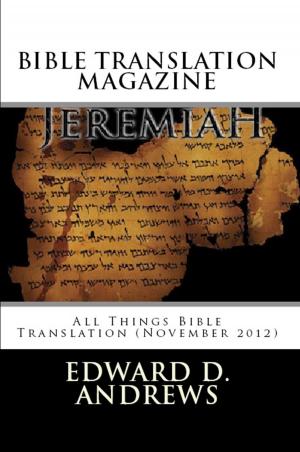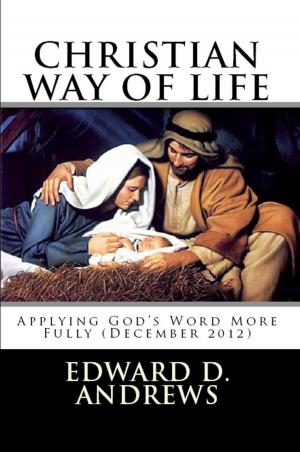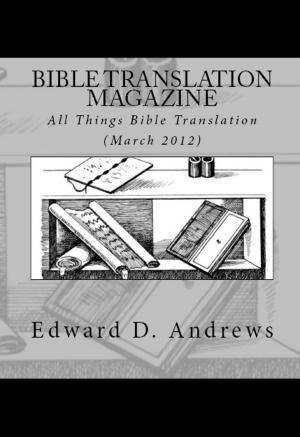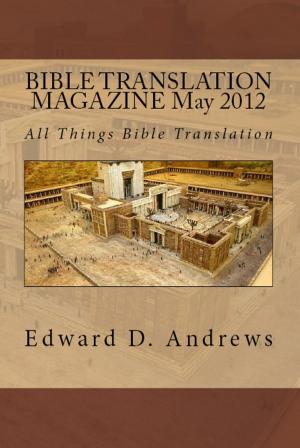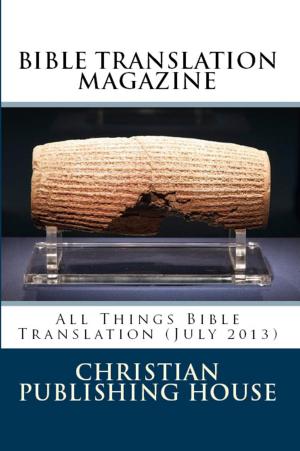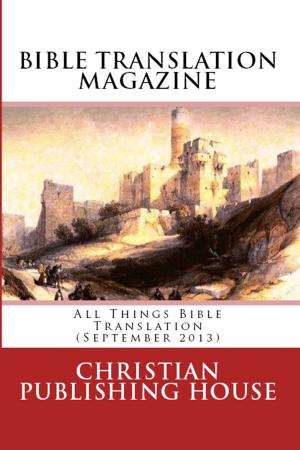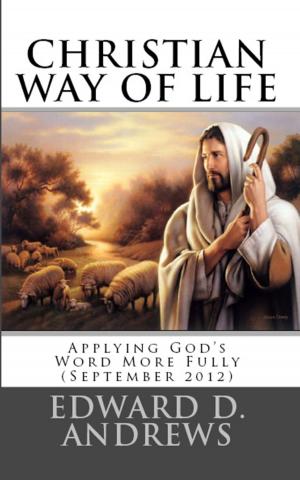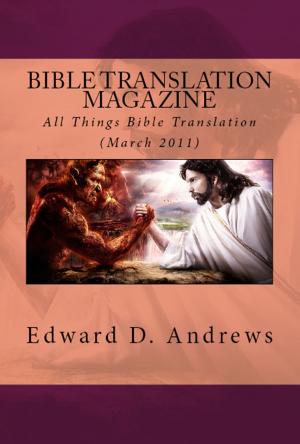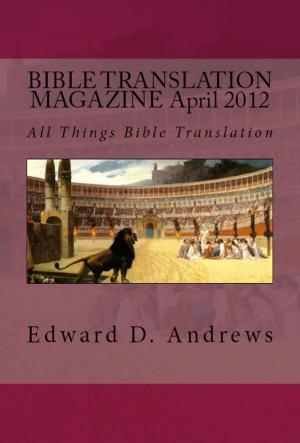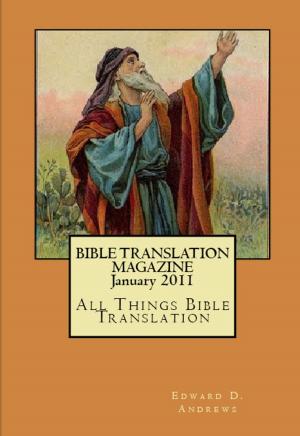BASICS OF BIBLICAL CRITICISM
Helpful or Harmful?
Nonfiction, Religion & Spirituality, Bible & Bible Studies, Criticism & Interpretation| Author: | Edward D. Andrews | ISBN: | 1230000027928 |
| Publisher: | Bible-Translation.Net Books | Publication: | October 30, 2012 |
| Imprint: | Language: | English |
| Author: | Edward D. Andrews |
| ISBN: | 1230000027928 |
| Publisher: | Bible-Translation.Net Books |
| Publication: | October 30, 2012 |
| Imprint: | |
| Language: | English |
The term criticism can either be viewed in a negative light as most would expect, but also in a positive light as well. The negative is "a spoken or written opinion or judgment of what is wrong or bad about somebody or something." The positive is simply the assessment of something, be it a car, a house, or more often a written work. In essence, it is a critique, an evaluation, or looking into something to gain more information, with the purpose of having a better understanding. Many view Biblical Criticism in the positive light, as the Bible scholars are simply critiquing, evaluating, or looking into the Bible books to gain more information, to ascertain a better understanding, the truth, be it what we would like to know, or are not happy to know.
Something that conservative evangelical Christians would not like to know, would be a statement such as, "Matthew, not Jesus, created the Sermon on the Mount." If a form of historical criticism brought this one point to us as actually being the truth of the matter, as opposed to what we have always known to be true, it could be quite a rude awakening, especially when there are hundreds if not thousands of other observations, some more astonishing, some less so, which biblical criticism has stated to be true.
We can divide biblical criticism into two areas of study: (1) lower criticism, known best as textual criticism, and (2) higher criticism, also known as historical criticism and biblical criticism. Textual criticism is the study of families of manuscripts, their history, their trustworthiness, the versions, the early church fathers writings, as well as internal evidence within the manuscripts, in order to determine which reading is the original one. Historical criticism on the other hand, is a method of investigation whose resolve is to make discerning judgments about the authorship of a book, the date of its writing, if there is dependency on any other literature, judging the contents, qualities, and techniques, its sources, its historical accuracy, historical and sociological setting, genre, its literary context, structure, form and function, rhetorical techniques, biblical traditions, oral and written, and so much more that it begins to boggle the mind.
Textual criticism over the past 450 years has given us a restored text, which allows us to translate and interpret the very Word of God. It has truly been beneficial. Alternatively, historical criticism has opened up Pandora's Box; a real overflow of pseudo-scholarly methods of biblical study where the end result has been disheartening for tens of thousands of Christians, who have suffered spiritual shipwreck as a result of losing faith in the Bible.
The term criticism can either be viewed in a negative light as most would expect, but also in a positive light as well. The negative is "a spoken or written opinion or judgment of what is wrong or bad about somebody or something." The positive is simply the assessment of something, be it a car, a house, or more often a written work. In essence, it is a critique, an evaluation, or looking into something to gain more information, with the purpose of having a better understanding. Many view Biblical Criticism in the positive light, as the Bible scholars are simply critiquing, evaluating, or looking into the Bible books to gain more information, to ascertain a better understanding, the truth, be it what we would like to know, or are not happy to know.
Something that conservative evangelical Christians would not like to know, would be a statement such as, "Matthew, not Jesus, created the Sermon on the Mount." If a form of historical criticism brought this one point to us as actually being the truth of the matter, as opposed to what we have always known to be true, it could be quite a rude awakening, especially when there are hundreds if not thousands of other observations, some more astonishing, some less so, which biblical criticism has stated to be true.
We can divide biblical criticism into two areas of study: (1) lower criticism, known best as textual criticism, and (2) higher criticism, also known as historical criticism and biblical criticism. Textual criticism is the study of families of manuscripts, their history, their trustworthiness, the versions, the early church fathers writings, as well as internal evidence within the manuscripts, in order to determine which reading is the original one. Historical criticism on the other hand, is a method of investigation whose resolve is to make discerning judgments about the authorship of a book, the date of its writing, if there is dependency on any other literature, judging the contents, qualities, and techniques, its sources, its historical accuracy, historical and sociological setting, genre, its literary context, structure, form and function, rhetorical techniques, biblical traditions, oral and written, and so much more that it begins to boggle the mind.
Textual criticism over the past 450 years has given us a restored text, which allows us to translate and interpret the very Word of God. It has truly been beneficial. Alternatively, historical criticism has opened up Pandora's Box; a real overflow of pseudo-scholarly methods of biblical study where the end result has been disheartening for tens of thousands of Christians, who have suffered spiritual shipwreck as a result of losing faith in the Bible.
